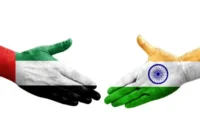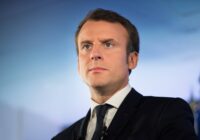With at least 127 dead in Paris, serious questions will be raised, but where will the answers be found?
There is blood on the streets of Paris. A city under siege. A nation gripped in panic. At the time of writing, at least 127 people have been murdered by terrorists in six separate incidences of horrific violence, with the express aim to instill fear in the hearts of many.
In less than a year, France has once again been subjected to terrorism, this time on a huge scale. There is every indication that these the events follow the pattern of radicalization found among young Muslim men witnessed throughout parts of western Europe for at least a decade. Some of these more prominent incidents occurred in Madrid and Amsterdam in 2004, London in 2005, Woolwich in 2013, and Copenhagen and Paris earlier in 2015.
In the most recent occurrence on November 13, the perpetrators might have been French-born, or not. At this stage, one can only speculate as to their true identities. One can only begin to suggest a relationship between the different incidences. Were the suicide bombings near the Stade de France, the siege of the Bataclan concert hall and the drive-by shootings all part of a single grand plan? Or has there been an element of copycat behavior on the part of some?
It is clear that three suicide bombers have been implicated in the attacks on the Stade de France. Three others blew themselves up when French police carried out their rescue of hostages trapped inside the Bataclan, while a fourth was shot dead. Another suicide bomber detonated an explosive on Boulevard Voltaire, near the concert hall.
Over the next few days and weeks, there will be considerable media analysis of these attacks and the implications they raise.
Syrian Refugees
The year 2015 is also one in which the Syrian refugee crisis has become a major talking point. The dominant sentiment toward groups fleeing persecution at the hands of the Islamic State has been to focus on such forms of immigration being a drain on national resources or alluding their coming as some kind of security threat.
With many countries shifting politically even further to the right, the hostility that Syrians face in Italy, Greece, Hungary, Poland, Austria and even Britain is antithetical to that in Germany. The Germans have emerged as distinctly humane compared to their western European counterparts.
There will be some making associations between the refugee crisis and this recent act of terrorism, but they will be wholly inaccurate. Those who carried out the Paris attacks will likely be a combination of French-born North Africans and some who may well have returned to France from the Islamic State. Syrian refugees are in flight precisely because of these so-called Muslims. Their fright is our collective fight.
Undoubtedly, there will be severe implications for the 5 million or so Muslims in France trying to live their lives as best they can in an already difficult climate of suspicion and fear. For at least two decades, young French Muslims have rebelled against the downward pressures placed upon them and the practices associated with their faith. The people of France as a whole will be in a state of shock for some time, but the dread experienced by Muslims in France will arguably be greater.
What is worse, the far-right, in France but also throughout Europe, will be rubbing their hands together in the knowledge that their arguments in proscribing certain Islamic and Muslim customs are seemingly justified. Policymakers and think tanks advocating a liberal argument to increase the pressure on outspoken Muslim voices, to the extent of silencing thought before there is even action, will feel vindicated.
There will be a great deal of emotion in the coming days. But once those who tragically lost their lives are put to rest, there will be severe questions and answers to consider.
The anxiety, however, is that the same mistakes will be made by politicians and influential characters. Rather than looking at the deeper historical, social, economic and political causes of the violent outcry, French President Francois Hollande may use this event as a way in which to galvanize the nation around the need for further securitization and illiberalism, as he did in January 2015. The extension of the idea of “muscular liberalism” espoused by British Prime Minister David Cameron in 2011 will ensure that the age of violence will go on.
It will be a continuation of the “War on Terror” culture that has permeated policy and practice in the West since the events of 9/11. What the poor, disenfranchised, marginalized and disaffected need and want is the culture of hope.
The views expressed in this article are the author’s own and do not necessarily reflect Fair Observer’s editorial policy.
Photo Credit: Hadrian / Pixinoo / Shutterstock.com
 We bring you perspectives from around the world. Help us to inform and educate. Your donation is tax-deductible. Join over 400 people to become a donor or you could choose to be a sponsor.
We bring you perspectives from around the world. Help us to inform and educate. Your donation is tax-deductible. Join over 400 people to become a donor or you could choose to be a sponsor.
Support Fair Observer
We rely on your support for our independence, diversity and quality.
For more than 10 years, Fair Observer has been free, fair and independent. No billionaire owns us, no advertisers control us. We are a reader-supported nonprofit. Unlike many other publications, we keep our content free for readers regardless of where they live or whether they can afford to pay. We have no paywalls and no ads.
In the post-truth era of fake news, echo chambers and filter bubbles, we publish a plurality of perspectives from around the world. Anyone can publish with us, but everyone goes through a rigorous editorial process. So, you get fact-checked, well-reasoned content instead of noise.
We publish 2,500+ voices from 90+ countries. We also conduct education and training programs
on subjects ranging from digital media and journalism to writing and critical thinking. This
doesn’t come cheap. Servers, editors, trainers and web developers cost
money.
Please consider supporting us on a regular basis as a recurring donor or a
sustaining member.
Will you support FO’s journalism?
We rely on your support for our independence, diversity and quality.







